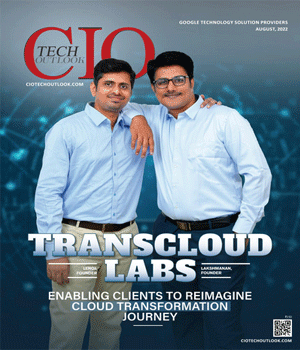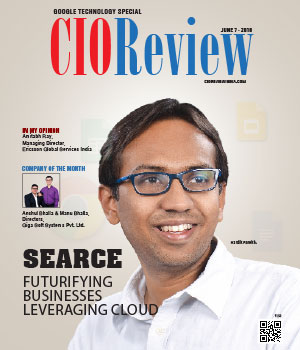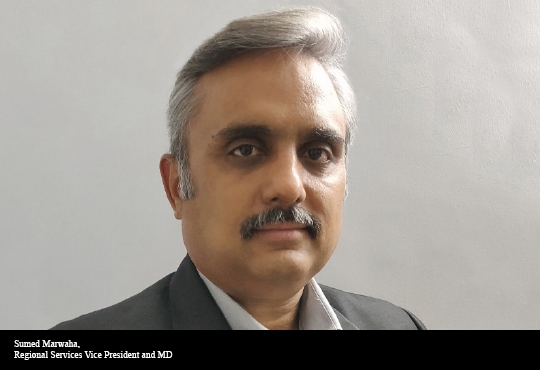
Why Indian CIOS Need To Get Aggressive On Ai-Enabling Their Enterprises
Premalakshmi R, VP-Autonomous Database, Oracle India
 1.Why do you believe cloud must be the foundation for emerging technologies like AI/ML?
1.Why do you believe cloud must be the foundation for emerging technologies like AI/ML?
Given the pace and kind of digital disruption underway, businesses understand that cloud is now a prerequisite for success. A burgeoning data wave coupled with superfast computing power (where you can scale up processing power real-time via the cloud) to crunch this deluge of data makes AI/ML a very effective enterprise growth enabler. I therefore believe cloud is the foundation for most emerging technologies like AI/ML, blockchain and chatbots.
2. How can AI/ML enable businesses to fuel innovation and make smarter decisions?
Speed is an important factor that enterprises need in order to retain/grow their customer base and maintain their success trajectory. That’s where AI/ML make all the difference. In the data-driven economy, an organization’s success depends on its ability to quickly extract insights from its data repositories/sourcesand take most appropriate actions across three key dimensions: (a) customer experience, (b) digital business capabilities and (c) communication infrastructure.
With advanced AI/ML, businesses can: (a) automate most mundane or complicated tasks to achieve a level of accuracy and efficiency beyond the capabilities of human workers, and (b) free up the IT workforce from doing mundane tasks, thereby empowering them to become knowledge workers in true sense - allowing them with more time for creative innovation and higher value work for the business.
3. How are Indian businesses leveraging emerging technologies like AI/ML as compared to other countries?
Indian CIOs understand the business potential of AI/ML. In fact, it’s one of the key topics raised by customers in several discussions in the last six months. Understandably, adoption of AI/ML in Indian enterprises is way faster than most of their APAC peers. Owing to the pervasive nature of ML in the enterprise, businesses are trying to improve their agility, customer-centricity and innovation cycles. The two major areas where Indian businesses are deploying AI/ML extensively are (a) customer engagement and (b) employee experience via AI enabled chatbots and advanced analytics for real-time decision making.
Some progressive Indian enterprises across verticals are coming up with innovative use cases of AI for the benefit of their business. ‘Bajaj Paddy’, the bot that pops up on the Bajaj Electricals’ website, is powered by Oracle. The company is using the chatbot to address customer queries better and faster. Bajaj Electricals is now thinking of extending the chatbot usage for employee self-service and other internal purposes as well.
Another noteworthy aspect is that there is a concerted push by NITI Aayog, the Government’s policy think tank, to advance AI/ML adoption in India. The blockchain pilot to prevent fake drugs in the pharma industry is powered by Oracle technology.
In the coming months, we anticipate a remarkable rise in the level of AI/ML adoption by Indian businesses.
4. What’s Oracle’s AI play? How are you making it easier for businesses to take advantage of AI/ML?
Our entire cloud portfolio is embedded with AI/ML capabilities, unlike other companies who offer AI/ML as add-ons. We’re empowering Indian organizations to upgrade to the technology of tomorrow, today - so that our customers can now focussolely on delivering faster, better innovations to their end consumers.
For example, business teams can drive better business outcomes using our AI-powered cloud applications by leveraging the pre-built intelligent features. For data scientists and application developers, our ready-to-build AI platform offers a range of cloud services to easily build, train, deploy as well as manage AI-powered solutions.
Our flagship solution - the Oracle Autonomous Database, which is the world’s first and only "self-driving, selfsecuring and self-repairing" database powered by ground breaking machine learning - redefines data management and takes the complexity out of running a business-critical database to enable unprecedented availability, high performance and security at a significantly lower cost. And it’s available as a cloud service, so not just large enterprises, even mid-size companies and startups can take advantage of this breakthrough innovation.
5. Could you outline a few specific examples of Oracle Au- tonomous Database customers in India and the business benefits they’re seeing?
Using Oracle Autonomous Database, several Indian organizations have started realizing tremendous business value from their data. These customers come from diverse industries - spanning digital commerce, IT and professional services, banking and consulting to name a few. With deeper, more meaningful insights, these customers have acknowledged significant improvementsin the quality and speed of business decisions, introduction of new products/services with a faster time to market and empowering their workforce to become smarter.
For instance, Federal Bank, a leading mid-size bank with origins in South India, used Oracle Autonomous Database with Oracle Analytics Cloud to improve their ATM Analytics. The bank is now able to get a deep dive view of which ATM is performing how, and what kind of transactions occurs in which ATM, to offer tailor-made customer experiences.
With Oracle Autonomous Database, Huron Consulting acquired the ability to:(a) scale on-demand, and (b)for patches to be made available and applied on demand. Huron has now found scaling or adding CPUs to be extremely simple and most importantly benefit from automatic patching, which is seamless - while reducing dependency on manual intervention and increasing cost savings overall.
6. What are the three key things that CIOs should look at in 2019 and beyond?
Gartner's annual global survey of CIOs outlines that the CIO role is indeed transitioning from a delivery executive to a business executive, from controlling cost and engineering processes, to driving revenue and exploiting data. CIOs are increasingly taking on roles and responsibilities outside traditional IT, with 51 percent of CIOs surveyed in India reporting that they are taking charge of innovation and 49 percent indicating that they are heading up digital transformation. Therefore, based on my observations and experience of extensively collaborating with C-suite over the years, it’s evident that transformational CIOs typicallyfactor in3 key aspects when they plan their long-term innovation strategy:
(a) Agility - Indian CIOs are under constant pressure to innovate faster and better, alongside effectively deploying emerging technologies for sustainable business benefits
(b) Security - With the democratization of IT, the onus is on the CIO to craft a unifying technology strategy for the company, taking business stakeholders along, to ensure business data is secure and breach-proof
(c) Automation – This will lead to elimination of human intervention in the daily, mundane tasks, which will automatically speed up the entire business lifecycle with more accuracy. As a result, more time can be devoted towards innovation and new ideas for better results. Another issue that CIOs are trying to address is bridging the IT skill gap.
CIO Viewpoint
Why Foolproof Facial Recognition Is Key Against...
By Joseph Sudheer Thumma, Global CEO & MD, Magellanic Cloud
National Technology Day 2025: Powering Progress...
By CIOTech Outlook Team
Aligning IT Roadmap with Business Objectives: A...
By Subhash singh Punjabi, CISO & Head Enterprise Architecture, Deepak Fertilisers & Petrochemicals Corporation Ltd
CXO Insights
Cloud Computing: Newer Models To Mitigate Risks
By Sumed Marwaha, Regional Services Vice President and MD, Unisys India
How Right Tools Create Easy Consumer...
By Ganesh Lakshminarayanan, COO, Capillary Technologies
Cloud Data Services Sparking Change In The...




.jpg)




